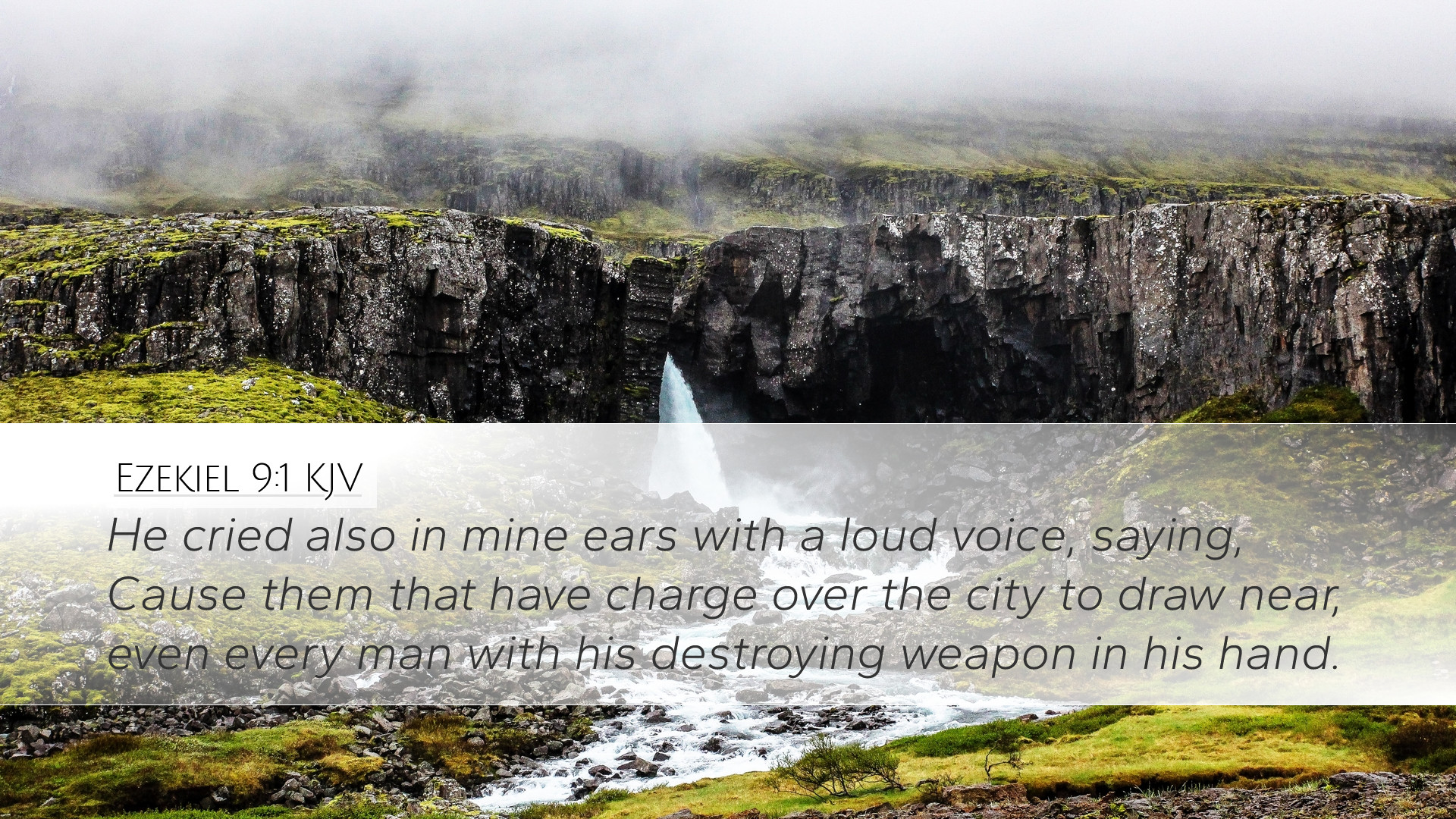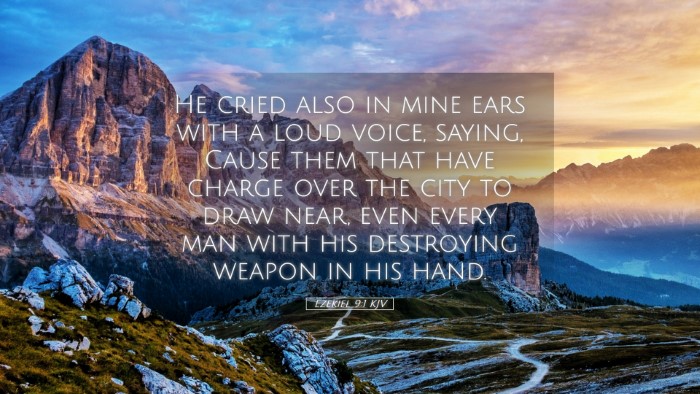Ezekiel 9:1 - A Commentary
Verse Context: Ezekiel 9:1 states: “He cried also in mine ears with a loud voice, saying, Cause them that have charge over the city to draw near, even every man with his destroying weapon in his hand.” This verse marks a significant moment in the prophetic vision given to Ezekiel, illustrating God’s judgement and the impending destruction upon Jerusalem.
Understanding the Call to Judgment
The opening of this chapter reveals a divine command issued to "those that have charge over the city." This phrase indicates a direct address to divine agents, likely referring to angelic beings or ministering spirits assigned to execute God's will. The severity of the command underscores the seriousness of the situation in Jerusalem.
Divine Authority and Judgment
According to Matthew Henry, the passage showcases God's sovereign authority over history and nations. He emphasizes that God does not act in randomness but with full knowledge and intent. The call for the officials to gather signifies an organized response to sin and rebellion against God—indicating that judgment is not arbitrary but carefully orchestrated.
Instrument of Judgment
The phrase "every man with his destroying weapon in his hand" evokes a powerful image of imminent destruction. Albert Barnes points out that this weapon is symbolic of God's judgment against the persistent wickedness observed in Jerusalem. It serves not only as an instrument of physical destruction but also represents spiritual judgment against unrepentance.
Imagery of the City’s Leaders
In this context, the leaders of Jerusalem are implicated as they are responsible for the moral and spiritual conditions of their people. Adam Clarke elaborates on the leadership dynamic, suggesting that the leaders' failure to uphold justice and righteousness lead the nation to sinfulness, which in turn necessitates divine retribution.
Spiritual Significance of the Call
Ezekiel’s ministry is one that constantly emphasizes the importance of repentance and returning to God. The harsh reality of destruction lays the foundation for understanding God's righteousness and justice.
The Role of Prophecy
Henry further notes that the prophetic call functions both as a warning and a clarion call to those who may heed the message of forthcoming judgment. While it highlights the seriousness of divine retribution, it also hints at the hope for those who are faithful and righteous in the midst of impending judgment.
Theological Implications
This verse brings to light crucial theological ideas regarding sin, justice, and grace. Barnes asserts that this act of judgment can be seen as a twofold response: the punishment of evildoers alongside the protection of the righteous. It prompts both leaders and laity to reflect on their lives, conduct, and relationship with God.
Applications for Today’s Believers
The relevancy of Ezekiel 9:1 transcends time. Modern readers are reminded of the need for personal holiness and active faith in light of God's ultimate sovereignty.
Call to Accountability
- Pastoral Reflection: Leaders in the church today must understand their role in guiding their communities towards godliness. Just as the leaders of Israel were called to account, so too are today’s leaders tasked with shepherding their congregations towards righteousness.
- Individual Responsibility: Each believer is called to examine their life against the character of God. As the people of Jerusalem faced pending destruction, modern Christians are called to discern their relationship with sin and strive for holiness.
Encouragement in Judgment
For the faithful, the imagery of weapons in hand does not signify despair but a profound awareness of God’s justice. Clarke observes that understanding God's judgment as a facet of His righteous character encourages believers to engage deeply with their faith and community.
Conclusion
The text of Ezekiel 9:1 serves as a powerful reminder of God's justice, the accountability of leadership, and the necessity of personal holiness. By reflecting on these insights from historic commentaries, pastors, students, theologians, and scholars can gain a deeper understanding of the complexities of divine judgment and grace. As they engage with the text, may they be led to action in their spiritual walks, encouraging others to be vigilant and committed to living vibrant lives of faith.


